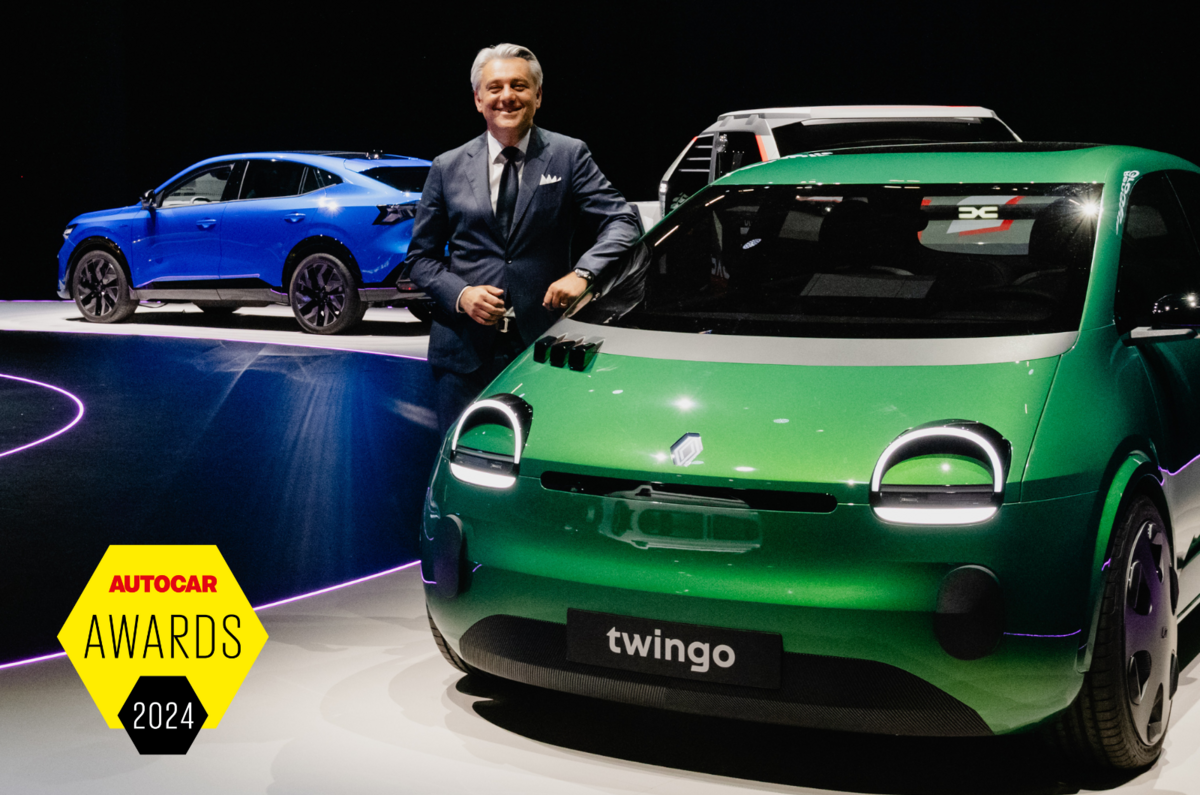Not often do you find yourself, twice in a few months, talking at length and one-to-one with a man as serially busy as Renault Group CEO Luca de Meo.
This is a man with no spare time at all, someone who powwows with the French prime minister and leaders of Europe. His diary fills at a year’s notice.
Yet the reason for this meeting is special. We are seeking time with de Meo to offer him our highest accolade, the 2024 Issigonis Trophy, largely on the strength of the series of dazzling achievements including record profits in his company’s 126-year history, posted less than three years after sustaining ruinous losses running at €140 million a day.
It has been one of the greatest recoveries in corporate history, not just automotive, accompanied by an expanding and highly credible brand and model strategy topped by the traffic-stopping launch of a brand-new Renault 5 electric supermini later this year. Demand for the car is already surging, six months ahead of delivery.
Despite all this, the portents of our latest meeting aren’t good.
De Meo has spent most of his day at Renault’s annual shareholders’ meeting, where reams of data is traditionally transmitted at pace to a hard-to-impress audience, where small stakeholders traditionally ask unanswerable questions, where dozens of resolutions must be put to a vote and where even the CEO’s salary (although considerably less than that of a Stellantis or Volkswagen chief) gets enviously discussed by folk whose stake in the company may not reach four figures. Who would want to do a press interview after that?
Yet de Meo smiles broadly as he arrives in our bare meeting room behind the vast auditorium used today to house the shareholder body.
He is well known for normality; after greetings we immediately start discussing the effects of his recent, highly unusual ‘Letter to Europe’, the self-styled assemblage of unbiased facts, data and suggestions covering the automotive industry and its competitive situation, recently circulated in 13 languages to experts, industry leaders and politicians ahead of the European elections, in an effort to help frame better regulations for tomorrow.
De Meo is greatly concerned that Europe (and thus the UK) lacks a cohesive industrial strategy and would love to be involved – with academics, union leaders, regulators and other OEM chiefs – in helping frame one for the motor industry. “
About 10 years ago our industry struck some serious troubles that backed us into a corner,” he says, referring to the diesel emissions scandal.
“It damaged the whole industry. We need to get out of that place and play our part in Europe’s industrial progress. The issues are complex, but I’m convinced they can be solved. Automotive represents between 8% and 9% of all European industry; it deserves a far higher priority than it currently gets.”










Join the debate
Add your comment
I applaud his achievements in recoverying the business. But the way he speaks about Chinese sports cars being good enough based on comparisons with existing cars. That's exactly the problem - just making something as good as the rest isn't doing anything new. Neither the Chinese ex-mobile phone producer nor himself are showing any evidence of interest in car production heritage - craftmanship, design, innovation and engineering prowess. Even taking the idea of copying can be better than that - like say Mazda with the original MX5. It took the classic sports car and redefined it for modern times. A copy yes but there was car enthusiast passion in there. The man may have done well for himself as an industrialist, but he sounds like he's applauding the future of whitebox cars, mere appliances. That'll be fine for your average driver who just wants A to B, but there's nothing here for the enthusiasts to crave yet. I'm not overly confident this new Renault 5 will be amazing. But I'll reserve judgement til I see if he's just rummaged in the history books or if they've done something clever and new.
“What’s the point in refusing progress?” he asks. This is a question that Autocar, with its relentless pushing of fossil fuel technology, and its rose-tinted obsession with classic cars, needs to ask itself.
Actions speak louder than words, I can't think of a single Renault I'd desire, especially one that could double as a family car.